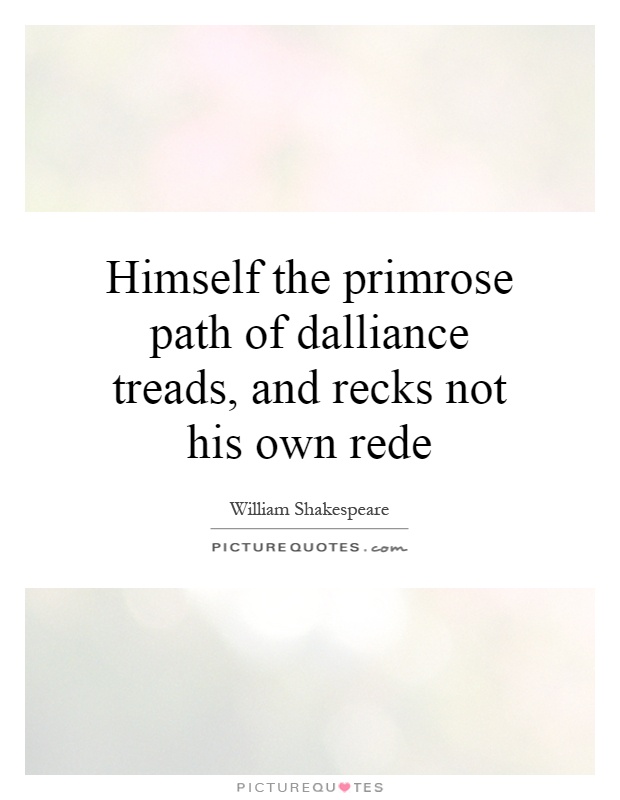Himself the primrose path of dalliance treads, and recks not his own rede

Himself the primrose path of dalliance treads, and recks not his own rede
The line "Himself the primrose path of dalliance treads, and recks not his own rede" is from William Shakespeare's play Hamlet. This line is spoken by Ophelia in Act 1, Scene 3, as she is describing Hamlet's behavior to her father Polonius. The phrase "the primrose path of dalliance" refers to a life of pleasure and indulgence, without regard for consequences or responsibilities. In this context, Ophelia is warning her father that Hamlet is leading a carefree and reckless life, and is not heeding his own advice or wisdom.The use of the word "primrose" in this line is significant, as primroses are delicate and beautiful flowers that are often associated with youth, innocence, and fleeting pleasures. By describing Hamlet's path as a "primrose path of dalliance," Shakespeare is suggesting that Hamlet is indulging in superficial and temporary pleasures, rather than facing the harsh realities of life.
The phrase "and recks not his own rede" further emphasizes Hamlet's lack of concern for his own well-being. The word "reck" means to care or pay attention to, and "rede" means advice or counsel. Ophelia is pointing out that Hamlet is not taking his own advice or wisdom seriously, and is instead choosing to ignore the consequences of his actions.
This line is significant in the play because it foreshadows Hamlet's descent into madness and self-destructive behavior. Throughout the play, Hamlet struggles with his own inner turmoil and conflicting emotions, leading him to make impulsive and reckless decisions. By treading the primrose path of dalliance and ignoring his own advice, Hamlet ultimately brings about his own downfall.
Overall, this line from Hamlet serves as a cautionary tale about the dangers of indulging in hedonistic pleasures and ignoring one's own wisdom. It highlights the consequences of living a life without purpose or direction, and serves as a reminder to heed one's own advice and counsel.












 Friendship Quotes
Friendship Quotes Love Quotes
Love Quotes Life Quotes
Life Quotes Funny Quotes
Funny Quotes Motivational Quotes
Motivational Quotes Inspirational Quotes
Inspirational Quotes